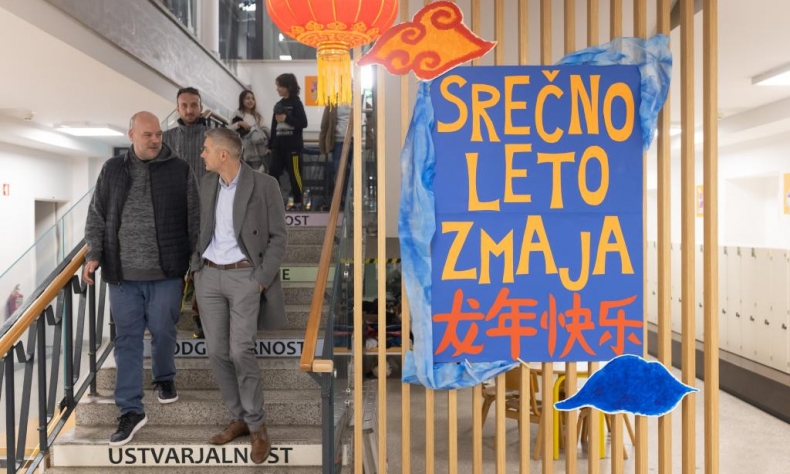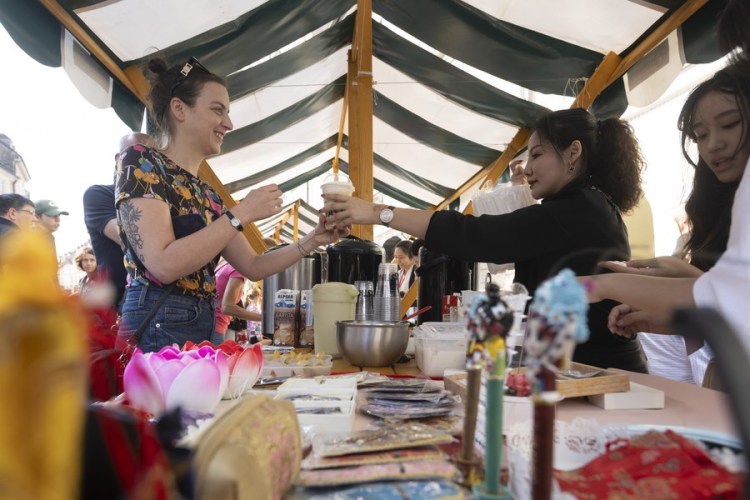Vision for Sensible Cooperation

There is enough space of autonomy for the EU to cultivate robust economic relations with China.
Borut Pahor, who served as prime minister of Slovenia from 2008 to 2012 and then president of the country from 2012 to 2022, is a strong advocate of positive relations between China and Slovenia. Shortly after the establishment of diplomatic ties between China and Slovenia in 1992, Pahor, then a member of the Slovenian parliament, led a parliamentary delegation to China and has made multiple subsequent visits.
In an exclusive interview with Beijing Review reporter Li Wenhan in late May, Pahor shared his views on the evolution of China-Slovenia relations over the past three decades. He emphasized the significance of cultural exchanges and how these interactions can foster a deeper understanding between diverse societies.
During the discussion, Pahor also detailed the future trajectory of bilateral relations and China-EU relations as a whole, particularly in light of rising global tensions that risk diverting focus from these important partnerships. Edited excerpts from the interview follow:
Beijing Review: How would you evaluate the China-Slovenia relationship over the past three decades?
Borut Pahor: Let us start the story with the diplomatic recognition by China of independent Slovenia back in 1992. And in 1996, I led the very first official parliamentary delegation to China. (Slovenia declared independence from Yugoslavia in 1991—Ed.)
I would like to share a particular aspect of our visit. Despite Slovenia being a small European country, we were profoundly struck by the remarkably warm reception extended to us by China during that time. The sheer hospitality and generosity we encountered surpassed our expectations, especially considering our status as a newly independent nation. This display of warmth left a lasting impression on me. I conveyed my sentiments to Chinese friends, and was fascinated by their response: “It matters not the size of your country, but rather the spirit and ideas it embodies. We aspire to foster an amicable relationship with you.” From that moment onward, I’ve been committed to nurturing this friendship. I’ve then paid multiple subsequent visits to China, to different cities at different occasions. We had a good relationship at that time. I would like to have good relations now, and into the future.
I must extend my heartfelt congratulations to China, its leadership and President Xi Jinping for the unbelievable development made in economic, political and technological spheres. I have witnessed transformation of the city of Beijing between 1996 and the present day. They are two different cities. It is an amazing development that you have achieved.
Our economic collaboration traces back to 1992, coinciding with China’s diplomatic recognition of Slovenia. While our initial endeavors were modest, they laid the foundation for deeper engagement. Fast forward to 2004, Slovenia became a full member of the EU. Against this backdrop, the economic collaboration between Slovenia and China began to take tangible shape, particularly within the broader context of EU-China relations. So that is why our two-way trade increased five-fold in the decade ending in 2022 and exceeded $5 billion in the first 10 months of 2023. (Slovenia exported 259 million euros ($281 million) worth of goods to China in 2023, with imports totaling 7.4 billion euros ($8 billion). This made China Slovenia’s fourth most important trading partner, up from 13th five years ago, according to The Slovenia Times—Ed.)

However, amid this economic success, a pertinent question arises: What lies ahead for our nations, not just Slovenia, but the EU as a whole? Will our economic relations flourish unstoppably, or will political considerations present obstacles? It is widely recognized that I advocate for strong ties with China, although I do not expect complete alignment on every issue. Nonetheless, concerted efforts should be made to bridge differences.
I firmly believe there is no inherent reason why the EU and China cannot maintain a good relationship. During my tenure as prime minister of Slovenia and as a member of the European Council, China was regarded as a strategic partner. Let us, therefore, prioritize enhancing these economic bonds, to the mutual benefit of both parties. (The European Council is composed of the heads of state or government of EU members and decides on the political direction of the bloc. The prime minister of Slovenia represents the country’s political interests in the council—Ed.)
As we stand at this juncture, a decision looms: Whether to gradually curtail or advance our economic ties. I stand firmly among those advocating for the latter, committed to fostering economic, technological and political cooperation between our two nations. And I think there is enough space of autonomy for the EU to cultivate robust economic relations with China.
From your perspective, what has been the most significant outcome of cross-cultural dialogue and exchange between the two nations, particularly in terms of promoting mutual understanding and collaboration?
Confucianism and the philosophy of Mencius (372-289 B.C.) have held profound significance for me, both during my student years and throughout my entire political career. The notion that, basically, the human nature is good at heart (a central tenet of Mencius’ thought—Ed.) is my strong belief. You cannot make good politics out of hate; you can make good politics for the people and for the benefit of community, if you do believe that you are doing from your heart, from your love, and not from the point of hate.
This belief has had a very strong implication on my approach to politics. President Xi articulated a principle a couple years ago that continues to guide me: There is enough space for everyone on this Earth, provided we respect each other. In my view, if mutual respect is absent, there will be no space for anyone. This principle forms the cornerstone of my vision for building an international community today.
We should respect each other. Your culture is beautiful, but it’s different than mine. My culture, my language, my cultural identity, all that I represent, are beautiful, too. I love them, and would like to maintain them. There is enough space for your culture and for mine, and we need to respect both cultures.
So I think there is an urgent need for dialogue. We will not solve all the problems in this world instantly. The only way to address them is through dialogue. Solutions must be found through compromises, through meaningful and fair concessions.
 Facebook
Facebook
 Twitter
Twitter
 Linkedin
Linkedin
 Google +
Google +










